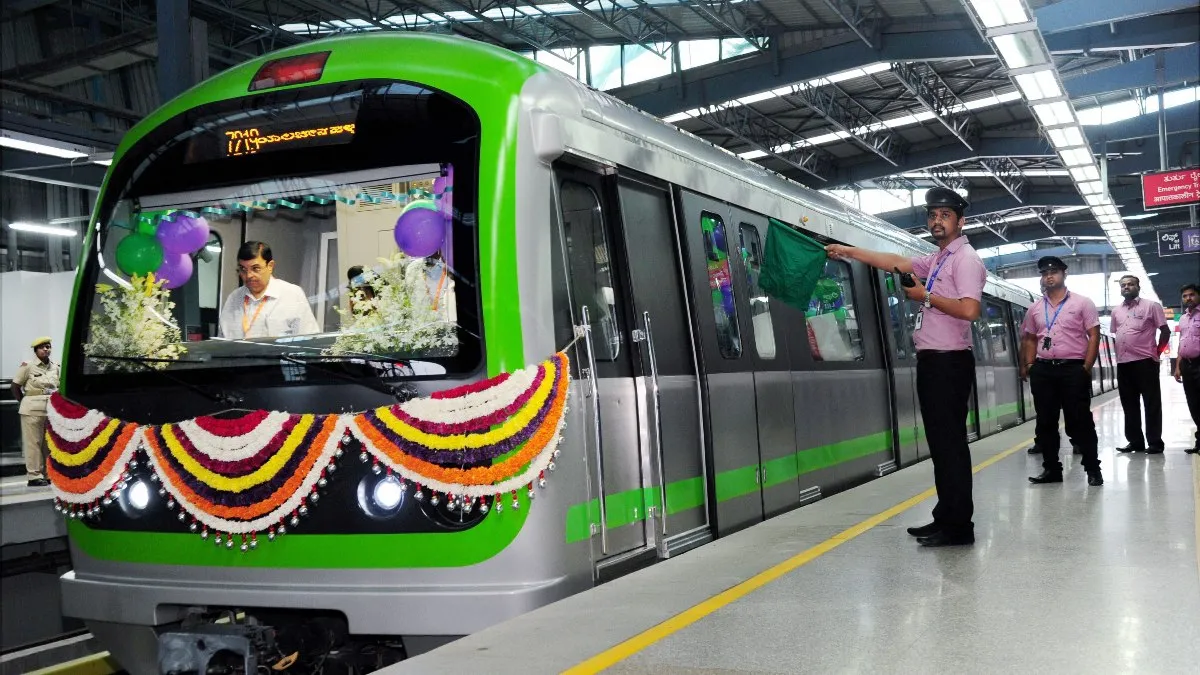Metro Commuters Frustrated Over Fare Hike, Students Hit the Hardest
The first weekday following the metro fare hike saw a wave of frustration among commuters, with students bearing the brunt of the increased costs. Many opted for alternative modes of transportation, such as personal vehicles, buses, autos, and cabs, to avoid the higher fares.
Commuters Shift Away from Metro
Several regular metro users expressed their dissatisfaction, choosing other travel options as a form of protest. Sreejith S Pai, a commuter from Whitefield, shared his concerns on social media, stating that he decided to drive his car instead due to the "problematic" fare structure.
Previously, metro fares followed a structured increment pattern with rates at Rs 10, 15, 18, 20, 23, 25, 30, 35, and so on. However, the revised fares now follow a steeper jump, set at Rs 10, 20, 30, 40, 50, 60, 70, 80, etc. Pai argued that fares should be calculated based on actual distance rather than fixed slabs such as 0-2 km, 2-4 km, and 4-6 km.
Students Struggle with Higher Costs
Students, who frequently rely on the metro for daily commutes, have been disproportionately affected by the fare increase. Prakruthi S, a college student, mentioned that she would now switch to buses and autos as the fare from Sandal Soap Factory to Majestic jumped from Rs 22 to Rs 40.
"Some of my friends are already searching for alternative bus routes," she shared. "If I have to pay this much, I might as well take an auto. The metro was supposed to be an affordable option, but now it's becoming unaffordable."
Similarly, Meghana G, a Bangalore University student, saw her daily fare from Sampige Road to Jnanabharati surge from Rs 33 to Rs 60. She previously used the metro only in the mornings to ensure punctuality for classes, opting for buses in the evening to save money. Now, she fears she will have to start her journey much earlier and endure crowded bus rides to stay within budget.
"We are full-time students with limited income sources. How can we manage rising commute costs along with education expenses?" she questioned.
Declining Metro Ridership
The fare hike appears to have impacted metro usage. One student observed that the Yeshwantpur metro station, typically bustling during peak hours, was nearly empty at 6 pm.
Apoorva CM, Bengaluru district president of AIDSO, expressed concerns that the increased fares would force students to spend additional time commuting via buses and other vehicles, reducing their study hours and overall productivity.
Calls for Student Concessions
When asked about the possibility of concessional metro passes for students, a senior BMRCL official stated that the state government could introduce such measures if approved by the fare fixation committee.
"The state government has the option to provide relief to students through Direct Benefit Transfer (DBT)," the official explained.
On Monday, metro ridership reflected the discontent, with only 6.27 lakh passengers recorded until 9 pm. Typically, weekday ridership reaches around 8 lakh, indicating a noticeable decline in users following the fare revision.

COMMENTS (0)
Sign in to join the conversation
LOGIN TO COMMENT